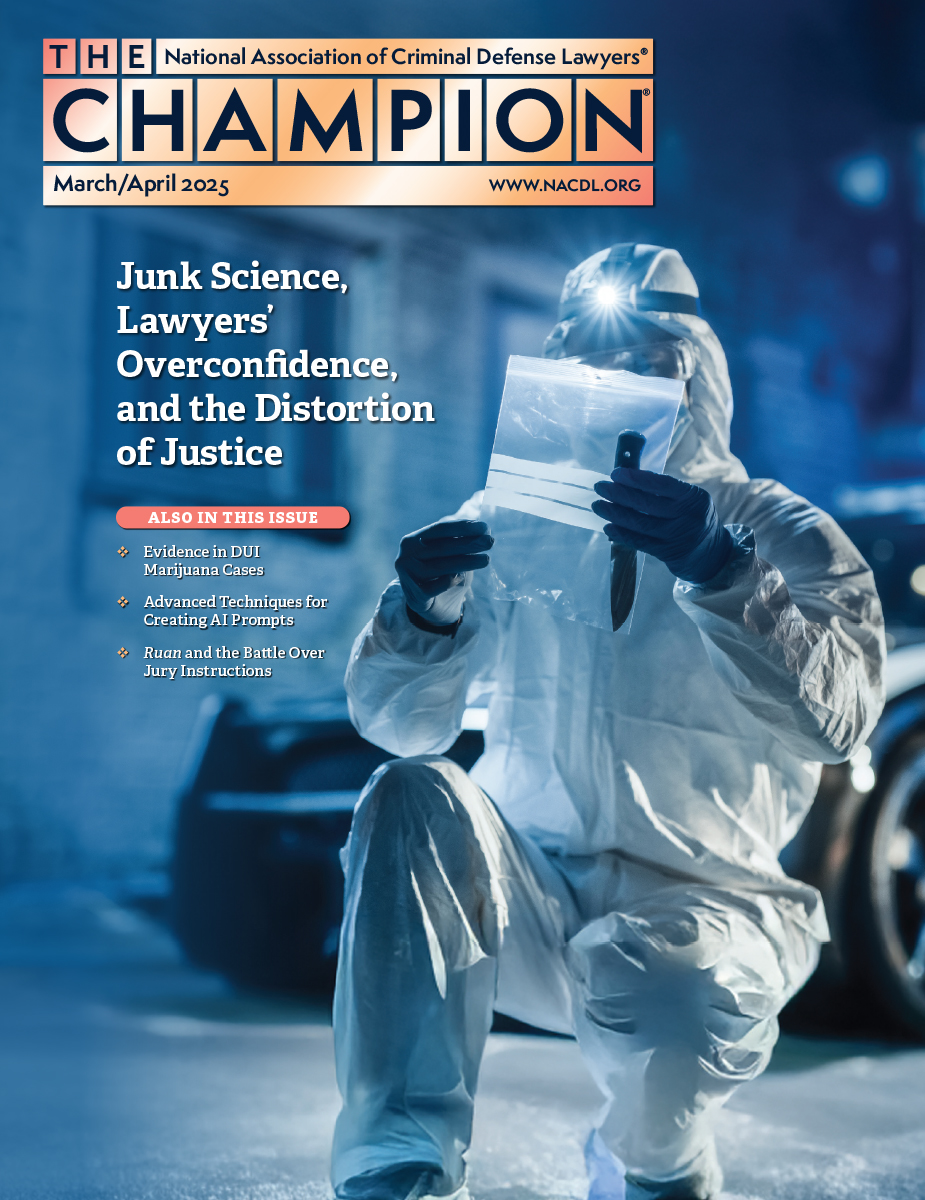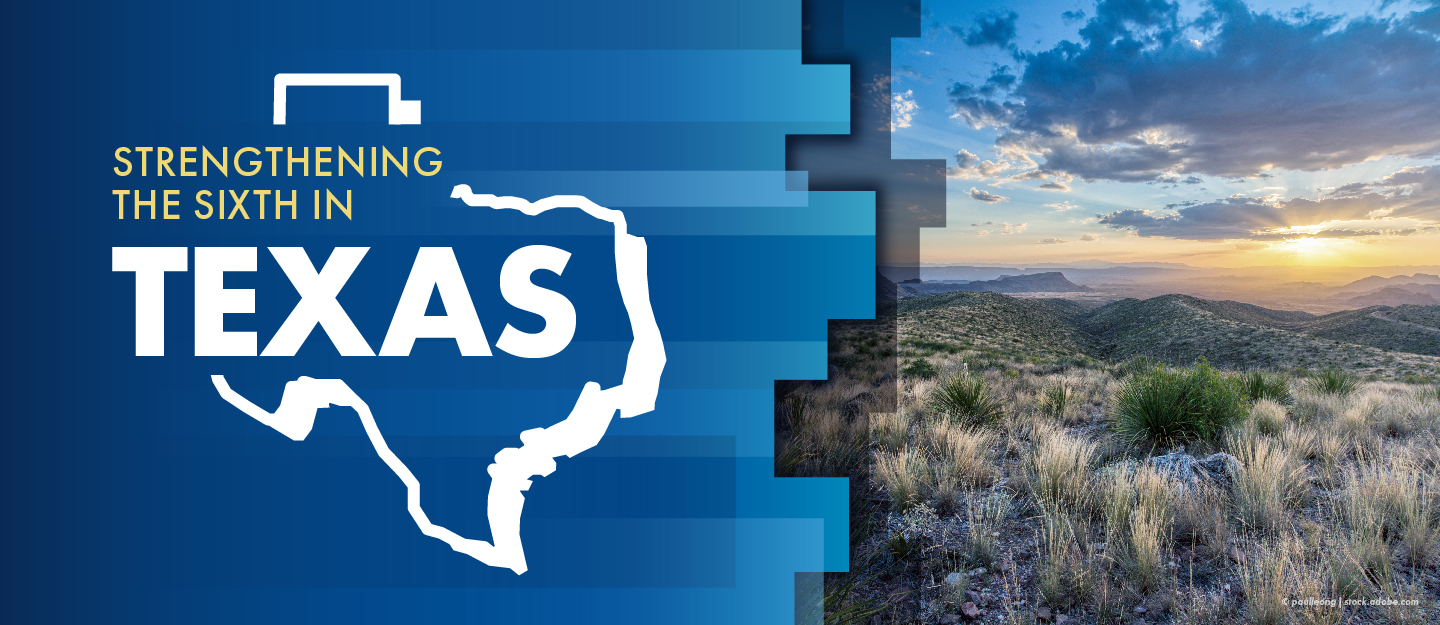Explore keywords to find information
RECENTLY ADDED & UPCOMING
-
The Champion

March/April 2025
What are the evidentiary implications of field sobriety tests in marijuana cases? Does the odor of marijuana give officers probable cause to search a vehicle?
-
Amicus Brief

Wilmer Cutler Pickering Hale and Dorr LLP v. Executive Office of the President
Brief of the National Association of Criminal Defense Lawyers and New York Council of Defense Lawyers as Amici Curiae in Support of Plaintiff’s Motion for Summary Judgment.
-
News Release

Nation’s Defense Bar Reiterates Opposition to Actions Against Law Firms – Washington, DC (March 18, 2025)
The National Association of Criminal Defense Lawyers (NACDL) remains deeply concerned over recent executive orders targeting law firms, most recently Paul Weiss and Perkins Coie, and repeats its call to uphold the right to counsel and the independence of the legal profession. Despite a ruling blocking the action against Perkins Coie, the administration has continued to target law firms representing disfavored clients and positions, threatening the right to a zealous defense.
-
Live Event

2025 Forensic Science & Technology Seminar
"Making Sense of Science: Forensic Science, Technology & the Law"
LOCATION: Sahara Las Vegas Hotel & Casino, Las Vegas, NV
DATES: April 24-26, 2025 -
Trials, Technology, and the Fourth Amendment: Case Law Review [Engage & Exchange]
EXCLUSIVE NACDL MEMBER BENEFIT
WHEN: Tuesday, April 29, 2:00-3:30pm ET / 11:00am-12:30pm PT
CLE CREDIT: not available
COST: Free








